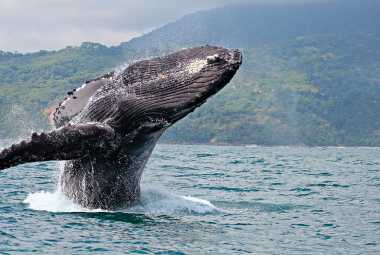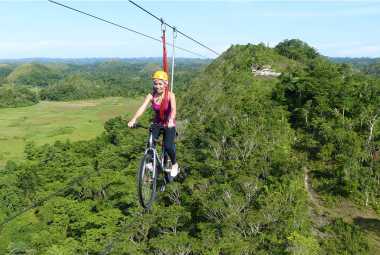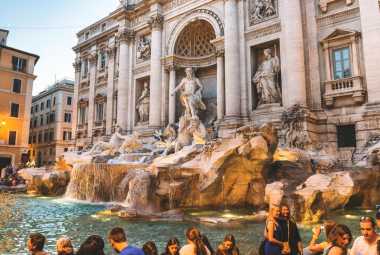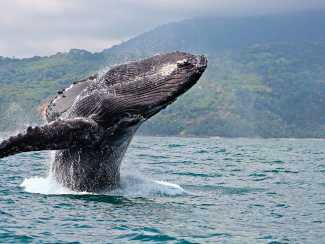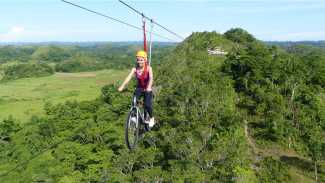Image by lovehappensmag.com
*Vacation Mode is a for-profit site. It contains paid banner advertisements that are generated and managed by a third-party network. This site also includes relevant affiliate links (both in the content and on the sidebar) all of which we do our best to clearly mark as such.
Costa Rica has been ranked as one of the happiest countries in the world, according to the Happiness Index. This article will delve into the various factors that contribute to Costa Rica's high level of happiness, including the impact of peace, environmental and social factors, cultural influences, economic stability, and the healthcare system.
By understanding the key elements that contribute to Costa Rica's happiness, we can gain valuable insights into what leads to fulfillment and satisfaction, offering lessons for other nations to consider.
Key Takeaways:
- Costa Rica's happiness can be attributed to factors such as peace, environmental sustainability, strong community bonds, cultural values, economic stability, and access to healthcare.
- The country's emphasis on peace and sustainability has a positive impact on its citizens' well-being and happiness, making it a role model for other nations.
- The traditional values and cultural practices in Costa Rica promote a healthy lifestyle and a sense of fulfillment, contributing to its high ranking in the Happiness Index.
Introduction to Costa Rica's Happiness
Costa Rica, a country known for its commitment to sustainability and environmental conservation, has gained widespread recognition for its high ranking in the Happy Planet Index, a measure of a nation's well-being and its environmental impact.
Costa Rica's government has implemented laws to protect the environment, such as creating national parks and reserves that cover a significant portion of its land.
The country's inhabitants embrace the Pura Vida lifestyle, which emphasizes simplicity, gratitude, and appreciation for life. This mindset contributes to Costa Rica's high happiness and overall well-being ranking.
Notably, the Nicoya Peninsula is one of the world's Blue Zones, where residents live exceptionally long and healthy lives. This further boosts Costa Rica's well-being ranking.
Why is Costa Rica the Happiest Country in the World
Video by Discovery Beach House
Understanding the Happiness Index
The Happy Planet Index, developed by the New Economics Foundation, evaluates a country's happiness by considering factors such as health, sustainability, social capital, and the ecological footprint, offering a holistic perspective on the well-being and contentment of its citizens.
Health is assessed based on life expectancy at birth while sustainability is measured through the ecological footprint and the rate of resource consumption.
Social capital considers factors like trust, equality, and participation in a society. The ecological footprint highlights the impact of human activities on the environment, emphasizing the importance of sustainable practices for future generations.
Notably, Costa Rica consistently ranks high on the Happy Planet Index due to its emphasis on environmental protection, strong social support networks, and a focus on sustainable living.
Costa Rica's Ranking in the Happiness Index
Costa Rica has consistently ranked high in the Happy Planet Index, attributing its success to the preservation of its lush rainforests, the initiatives led by the Ministry of Justice and Peace, and its thriving economy fueled by sustainable practices amidst the challenges of climate change, showcasing the country's rich biodiversity and commitment to overall well-being.
Costa Rica's emphasis on rainforest conservation has been pivotal in maintaining its high Happy Planet Index ranking. The Ministry of Justice and Peace plays a significant role in promoting peace, justice, and environmental protection, further enhancing the country's happiness indicator.
The country's economy, centered around sustainability measures, has contributed to its citizens' well-being despite the global threat of climate change. The biodiversity in Costa Rica also plays a crucial role, offering a harmonious and nature-rich environment that contributes to the overall happiness and satisfaction of its people.
Peace and Happiness in Costa Rica

The peace initiatives undertaken by Costa Rica, exemplified by the dedicated efforts of the Ministry of Justice and Peace, along with the collaborative endeavors of organizations like the Global Alliance Summit Ministries and Rasur Foundation, have significantly contributed to fostering an environment that promotes happiness and well-being.
Costa Rica's dedication to peace and happiness is not only evident in its policies but also deeply ingrained in its societal fabric. The Ministry of Justice and Peace operates as a central authority in driving these initiatives, working tirelessly to create avenues for conflict resolution and reconciliation.
Through its programs and outreach efforts, the Ministry plays a pivotal role in fostering a culture of peace and understanding. The Global Alliance Summit Ministries, in collaboration with local communities, actively promotes education and advocacy for peace. By organizing workshops, seminars, and community events, they bring together diverse groups to facilitate dialogue and understanding. This grassroots approach serves as a powerful catalyst for building harmonious relationships that contribute to overall happiness.
The Rasur Foundation, with its focus on conflict resolution and promoting nonviolent approaches, has been instrumental in implementing restorative justice practices. By emphasizing the principles of forgiveness and empathy, they have helped transform the narrative of conflicts, paving the way for healing and peace.
Impact of Peace on Happiness
The establishment of peace in Costa Rica has not only fostered a deep sense of social capital and longevity among its citizens but has also reinforced the country's commitment to democracy and well-being, showcasing the profound impact of peace on overall happiness.
Costa Rica's long-standing dedication to peace has significantly contributed to the flourishing of social capital, creating a cohesive and collaborative society where trust and mutual support form the cornerstone of community well-being.
The sense of security and stability within the country has played an essential role in promoting longevity, allowing individuals to lead healthy and fulfilling lives.
This emphasis on peace has not only nurtured a strong foundation for democracy but has also strengthened the country's well-being. By prioritizing diplomacy and conflict resolution, Costa Rica has cultivated a society where individuals feel give the power toed to engage in civic participation, further fueling the nation's democratic values.
Environmental and Social Factors

Costa Rica's commitment to sustainable practices, illustrated by its stringent environmental regulations and the implementation of social welfare programs, underscores the intrinsic relationship between the environment and societal well-being, contributing significantly to the country's overall happiness.
Costa Rica's sustainable practices are reflected in its rich biodiversity and emphasis on conservation. The country's dedication to preserving its natural resources has created a harmonious environment that supports the well-being of its citizens.
The implementation of social welfare programs has played a crucial role in reducing poverty rates and enhancing the overall quality of life for Costa Ricans, further contributing to the nation's happiness.
Relationship Between Environment and Happiness
Costa Rica's pristine rainforests, rich biodiversity, and minimized ecological footprint showcase the profound relationship between the environment and happiness, with the country serving as a testament to the positive impact of environmental preservation on overall well-being.
The lush rainforests in Costa Rica are not only a sight to behold but also a vital component of the country's natural ecosystem. The abundance of flora and fauna, from exotic tree frogs to jaguars, highlights the sheer diversity found within these rainforests.
The preservation of these ecosystems reflects Costa Rica's commitment to maintaining ecological balance while providing an idyllic environment for both its inhabitants and visitors. By embracing sustainability and promoting eco-friendly practices, Costa Rica has significantly reduced its ecological footprint, setting a remarkable example for the rest of the world. This conscious effort has led to a sense of pride and contentment among the people, contributing to the overall happiness in the nation.
Social Support and Community
Costa Rica's strong community bonds and emphasis on social support not only foster a sense of collective well-being but also contribute to the development of robust social capital, reflecting the vital role of community in enhancing the country's happiness.
The interconnectedness and mutual support within Costa Rica's social fabric have led to a society where individuals feel deeply connected and valued, providing a sense of security and belonging.
This collective outlook extends beyond family and friends to encompass the wider community, creating a network of solidarity and shared responsibility.
The significance of social support can be seen in the way Costa Ricans come together during times of celebration or hardship, cultivating a strong sense of community resilience and fostering a foundation of trust and reciprocity.
Cultural Influence on Happiness
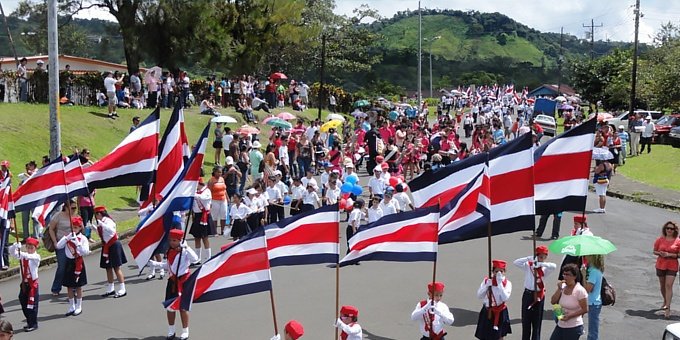
The traditional values and cultural practices deeply ingrained in Costa Rican society significantly influence the overall well-being and happiness of its citizens, exemplifying the profound impact of cultural heritage on shaping a nation's contentment and fulfillment.
One of the key elements contributing to Costa Rica’s happiness is its strong sense of community that stems from its cultural practices. The emphasis on family, close-knit relationships, and collective well-being creates a supportive environment.
This cultural value is known as the 'pura vida' lifestyle, meaning 'pure life.' It resonates throughout various aspects of life, from work-life balance to the appreciation of nature and leisure.
The emphasis on inclusivity and connectedness strengthens social ties, promoting a sense of belonging and emotional security among the citizens.
Traditional Values and Happiness
The enduring cultural practices in Costa Rica, rooted in traditional values and communal harmony, play a pivotal role in shaping the well-being and happiness of its citizens, showcasing the enduring influence of cultural heritage on societal contentment.
Costa Rica's cultural landscape reflects a deep connection to nature and a strong sense of community, derived from its traditional values. The emphasis on respect for elders, strong family bonds, and collective responsibility creates a cohesive social fabric, fostering a sense of belonging and mutual support among its people.
The celebration of cultural heritage through vibrant festivals, music, and dance not only strengthens the sense of identity but also promotes unity and joy. These cultural expressions serve as a testament to the enduring influence of tradition on fostering happiness and collective well-being within Costa Rican society.
Economic Stability and Happiness
Costa Rica's commitment to sustainable economic practices, characterized by the provision of employment opportunities and the promotion of income equality, plays a pivotal role in fostering societal well-being and happiness, reflecting the multifaceted impact of economic stability on overall contentment.
By prioritizing sustainability in its economic strategies, Costa Rica has not only created a conducive environment for its citizens but has also attracted international recognition for its progressive policies.
The country's emphasis on renewable energy sources and eco-friendly initiatives has not only contributed significantly to the global fight against climate change but has also provided a blueprint for other nations seeking to harmonize economic growth with environmental preservation.
Role of Economic Factors
Costa Rica's thriving economy, driven by sustainable practices such as ecotourism and renewable energy initiatives, stands as a testament to the profound impact of economic factors on the country's happiness, particularly in the face of challenges posed by climate change.
In recent years, Costa Rica has successfully transitioned its economy towards sustainability, with an emphasis on diversification and innovation.
The country's commitment to ecotourism has not only bolstered its economic growth but also preserved its natural wonders. Why is Costa Rica the happiest country?
Costa Rica's remarkable strides in renewable energy initiatives, with a focus on hydropower, wind, and solar, have not only reduced carbon emissions but also contributed to the global effort in combating climate change.
This resilience and adaptability have positioned Costa Rica as a beacon of hope for sustainable development and economic prosperity amidst environmental challenges.
Government Policies and Happiness
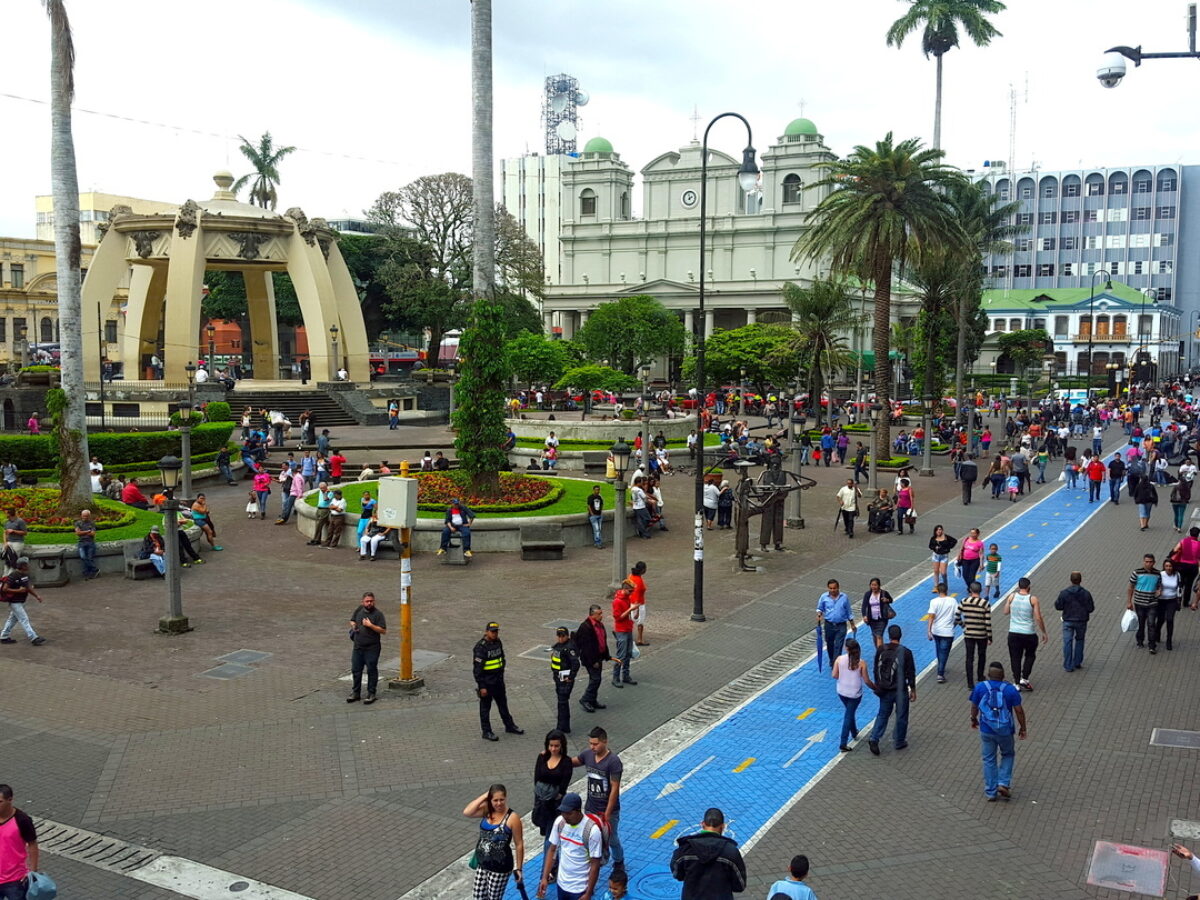
The comprehensive government policies in Costa Rica, particularly those spearheaded by the Ministry of Justice and Peace, are instrumental in promoting the well-being and happiness of its citizens, with a strong emphasis on healthcare and overall societal well-being.
Costa Rica's flagship healthcare initiative, known as the Caja Costarricense de Seguro Social (CCSS), exemplifies the prioritization of public health. The CCSS provides universal healthcare coverage, ensuring that citizens have access to essential medical services and facilities, contributing to the overall happiness and well-being of the population.
Plus healthcare, government policies have championed societal well-being through various programs and initiatives. These include educational reforms, social welfare programs, and sustainable development efforts, all aimed at fostering a positive environment conducive to happiness and fulfillment.
Health and Happiness in Costa Rica
Costa Rica's robust healthcare system, characterized by universal access to healthcare and a strong emphasis on overall health and well-being, plays a pivotal role in fostering happiness and contentment among its citizens, reflecting the intrinsic link between health and societal well-being.
Access to quality healthcare services is crucial for the well-being and happiness of the population. This includes both preventive care and medical treatment. In Costa Rica, there is a strong emphasis on holistic health, which considers the physical, mental, and emotional aspects of a person's health. This comprehensive approach to healthcare enriches the lives of individuals in the country.
Healthcare System and Happiness
Costa Rica's sustainable healthcare system, with a strong emphasis on wellbeing and a minimal environmental impact, significantly contributes to fostering happiness and contentment among its citizens, reflecting the holistic approach to health and societal well-being.
This approach is ingrained in every aspect of life in Costa Rica. The country's dedication to sustainable healthcare involves extensive use of holistic treatments, natural remedies, and a focus on preventive measures rather than just treating ailments.
The emphasis on well-being goes beyond medical care, with an abundance of outdoor activities, clean air, and access to fresh, locally grown food that contribute to the overall happiness and contentment of the population.
Healthy Lifestyle and Happiness
The pervasive emphasis on adopting a healthy lifestyle in Costa Rica, encapsulated by the availability of fitness, sports training, and rehabilitation facilities, contributes significantly to fostering happiness and contentment, reflecting the country's commitment to overall well-being.
This commitment to physical and mental well-being is evident in the array of options available for individuals seeking to improve their fitness and wellness.
Costa Rica's lush landscapes and favorable climate create an ideal environment for outdoor activities, from hiking in the diverse terrain to engaging in water sports along the pristine coastline.
The country is home to modern sports training facilities and professional rehabilitation centers that cater to a broad spectrum of needs, whether it be specialized training for athletes or comprehensive programs for injury recovery and physical therapy.
Conclusion: Costa Rica's Happiness Index
In conclusion, Costa Rica's remarkable performance in the Happiness Index is a testament to the nation's unwavering commitment to fostering fulfillment, satisfaction, and overall well-being among its citizens, serving as a beacon of inspiration for nations worldwide.
By placing happiness and well-being at the forefront of its socio-economic policies, Costa Rica has set a commendable example for other nations. The country's dedication to environmental conservation, equitable healthcare, and education has contributed significantly to the Happiness Index, reflecting the comprehensive approach Costa Rica has embraced in enhancing the quality of life for its residents.
Through progressive social initiatives and the promotion of mental and physical well-being, Costa Rica has cultivated a society that prioritizes not only material prosperity but also emotional and communal fulfillment. As a result, the country has consistently ranked high in global happiness assessments, inspiring positive change and introspection in other nations striving to elevate the well-being of their populations.
Fulfillment and Satisfaction
Costa Rica's success in nurturing fulfillment and satisfaction offers invaluable lessons for other nations, showcasing the transformative power of prioritizing the well-being and happiness of citizens as pillars of national development and progress.
The country's focus on sustainable living, environmental conservation, and fostering a strong sense of community has enabled it to create a society where happiness is not just an individual pursuit, but a collective endeavor.
By valuing factors such as a strong social support network, access to quality healthcare, and a deep connection with nature, Costa Rica has shown that a holistic approach to national well-being leads to widespread prosperity and satisfaction.
This approach sets an inspiring example for nations seeking to enhance the quality of life and happiness of their citizens, demonstrating that economic success is not the sole measure of a nation's progress.
Frequently Asked Questions
Why is Costa Rica the Happiest Country?
Costa Rica has been named the happiest country in the world multiple times in various studies and surveys. This is due to a combination of factors that contribute to the overall happiness and well-being of its citizens.
What are some reasons for Costa Rica's happiness?
Costa Rica's happiness can be attributed to its strong sense of community and social support, a stable economy, high levels of education and healthcare, and a focus on sustainable living and preserving the environment.
How does Costa Rica prioritize well-being?
Costa Rica's government places a strong emphasis on the well-being of its citizens, making it a top priority in policy-making. This includes investing in education, healthcare, and social programs that promote a sense of community and improve overall quality of life.
Does Costa Rica's natural beauty play a role in its happiness?
Yes, Costa Rica's lush landscapes, biodiversity, and access to outdoor activities have been shown to have a positive impact on the well-being of its citizens. The country also has a strong commitment to environmental conservation, which adds to its overall happiness.
Are there any cultural factors that contribute to Costa Rica's happiness?
Yes, Costa Rica's culture is known for its laid-back, "pura vida" lifestyle, which promotes a positive attitude and appreciation for life's simple pleasures. Additionally, the country has a strong sense of social equality and a lack of income inequality, which can also contribute to overall happiness.
What can other countries learn from Costa Rica's happiness?
Other countries can learn from Costa Rica's focus on social well-being, environmental sustainability, and a strong sense of community. By prioritizing these factors, countries can improve the overall happiness and quality of life for their citizens.


